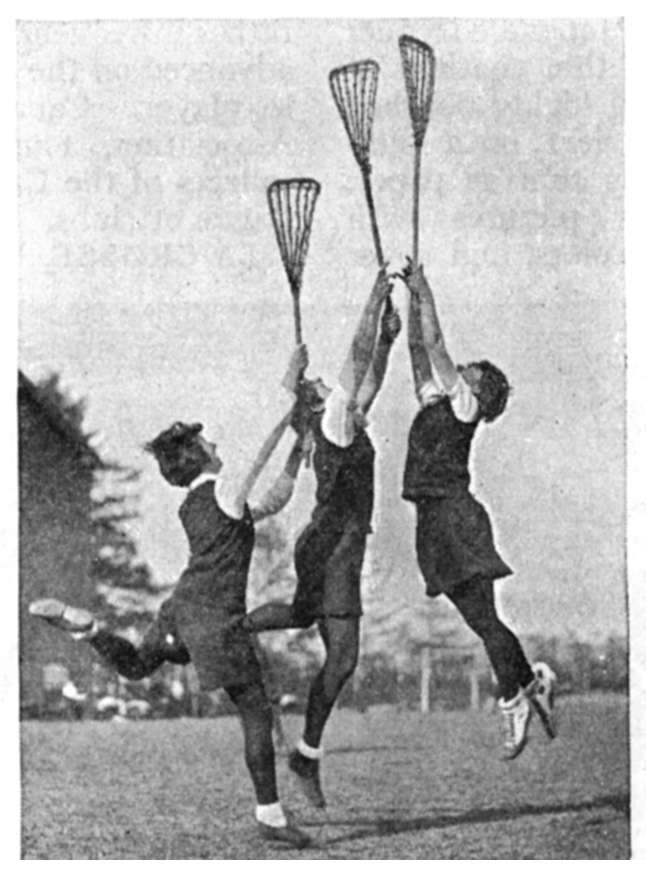Extracurricular Activities
Updated 9/18/22
When I was in high school, my main extracurricular pastime was what my best friend and I referred to as “hacking around.” Loosely translated, this term covered such afterschool pursuits as stopping at my house for a quick snack of soda and chips before meandering to hers for butterscotch brownies, all the while carrying on a lively debate about the relative merits of frosted versus clear lip gloss. My sole organized activity was acting in a few of the school plays.
 Noting this, my guidance counselor advised me to join an athletic team so as to appear more well-rounded. For reasons lost to me now, I chose the lacrosse honor squad. Fifteen girls tried out for fifteen spots and I was chosen fifteenth. What followed was a season of torment. Who knew that there were no boundaries in girls’ lacrosse? You were expected to chase the ball endlessly, a rule that I found frankly unreasonable and chose to personally boycott.
Noting this, my guidance counselor advised me to join an athletic team so as to appear more well-rounded. For reasons lost to me now, I chose the lacrosse honor squad. Fifteen girls tried out for fifteen spots and I was chosen fifteenth. What followed was a season of torment. Who knew that there were no boundaries in girls’ lacrosse? You were expected to chase the ball endlessly, a rule that I found frankly unreasonable and chose to personally boycott.
That one season was the beginning and the end of my high school athletic career. I went back to being a sometime actor—and was still accepted to several reputable colleges. Today, however, if I applied to those same schools, my extracurricular record would be a significant hindrance.
What Do Colleges Want?
The message from top colleges today is quite different from what it was a generation ago. Colleges are still looking for some breadth of interests, but they are far more concerned with depth of involvements. Rather than looking for well-rounded students, many colleges say they are looking to create a well-rounded class, made up of students who each excel in one or two areas. A student who has devoted significant time to two or three activities is considered far more desirable than the student who is a member of twelve.
In addition to having committed serious time to an activity, however, colleges want to see that the student has excelled in it, assumed leadership, and demonstrated initiative.
So if I were a high school student today with an astute guidance counselor, she would advise me to try to demonstrate accomplishment in drama by securing major roles or entering competitions. She might suggest that I deepen my involvement by joining a community theatre group, attending a summer program in drama, taking voice lessons, or joining a choral group (assuming she'd never heard me sing). I might demonstrate leadership by being president of the thespian society or initiating an afterschool drama program for elementary school children.
However, my counselor would probably tell me I needed a bit more breadth of activities as well. Since both low aptitude and a poor attitude make me unsuited to team sports, she might suggest I consider forensics, debate, or student government. And she would definitely recommend that I find a meaningful service activity. For more on this topic, read the article on Service Activities.
Why do activities matter?
Colleges care about extracurricular activities for a couple of reasons. First, in constructing a freshman class, they are not aiming to assemble 1,000 Poindexters who’ve taken 25 AP courses and earned perfect test scores. Rather, they’re trying to create a diverse, vibrant community, so they are looking for great students who will also lead the football team to victory, produce offbeat musicals and publish spirited editorials in the student newspaper. Such students enhance campus life for everyone.
Second, many top liberal arts institutions without pre-professional majors view extracurricular activities as an important career-building adjunct to the academic side of college. For example, the business manager of my son’s singing group was responsible for booking engagements throughout the year and amassing enough money to underwrite the costs of 13 young men taking a 10-week “world tour” over the summer. That’s an impressive resume-builder!
Having touted the virtues of extracurricular activities, however, I must admit to feeling some regret about the hyper-structured world we adults have created for our children. So let us at least make sure that the activities we urge them to pursue with such zeal are the ones they truly enjoy, and that every teenager has some time left for just “hacking around” with a best friend.
Parent Tip
Many college applications, including the Common Application, ask students to complete a detailed table of extracurricular activities, including the number of hours a student has spent per week, the number of weeks per year, and any awards or recognitions earned.
Imagine yourself and your daughter in the fall of senior year, trying to recall how many hours per week she devoted to the 9th grade Homecoming Float Committee, or whether the award she won in junior varsity swimming was Miss Congeniality or Most Improved. Now imagine doing that for every activity she’s participated in and every award she’s earned over four years. I guarantee you it won’t be pretty, so save yourself a major headache by keeping careful track of your teen’s activities as they occur.
Next article: Service
Tell A Friend About This Page
Thank you for taking the time to share this page. To get started, simply fill in the form below and we'll send a link to this page for you. You may customize the message as you wish.




